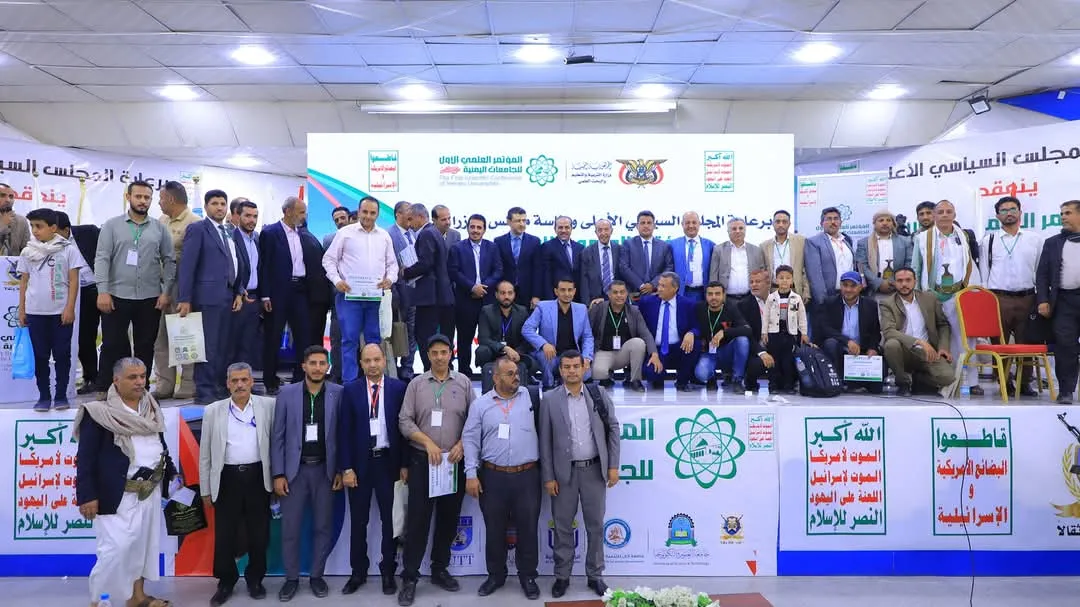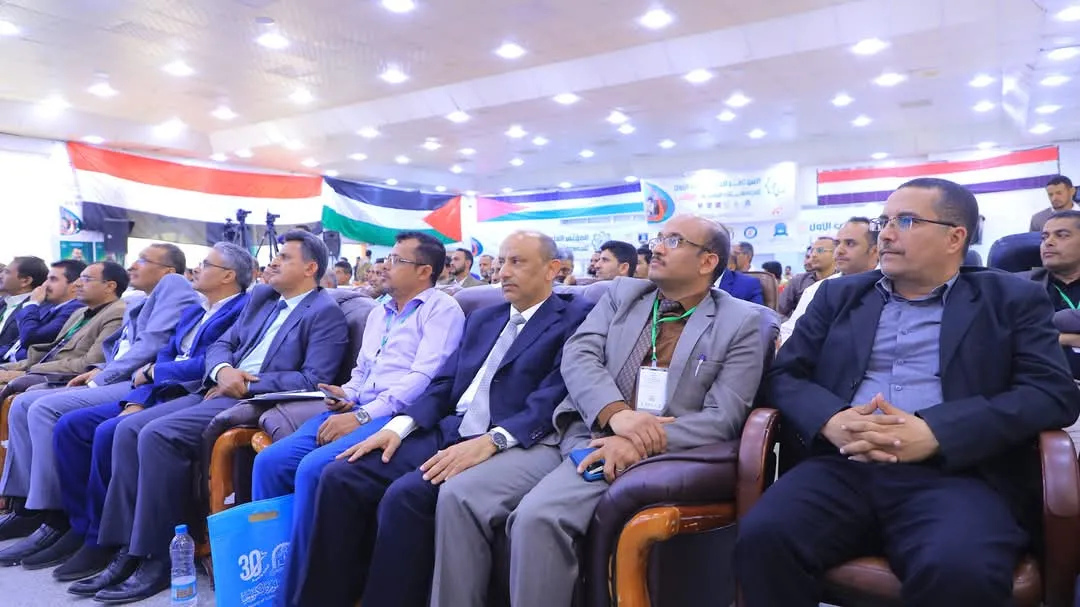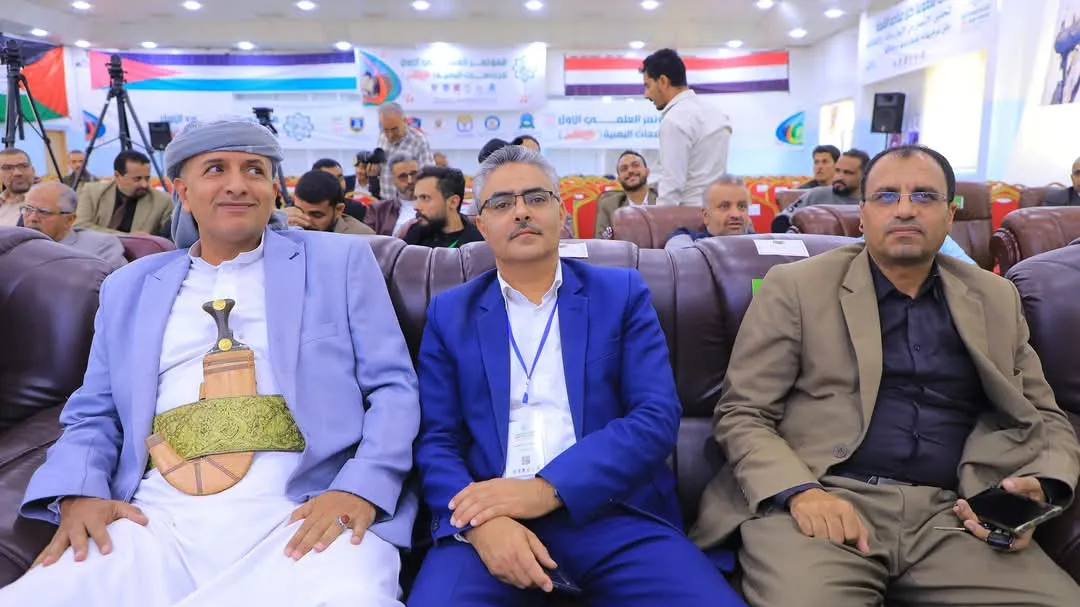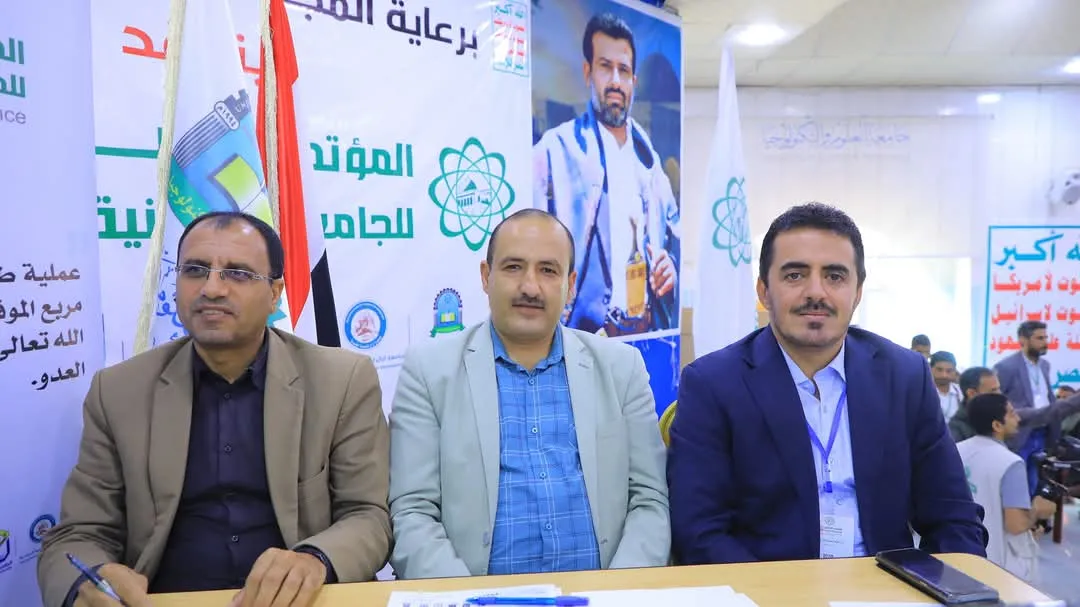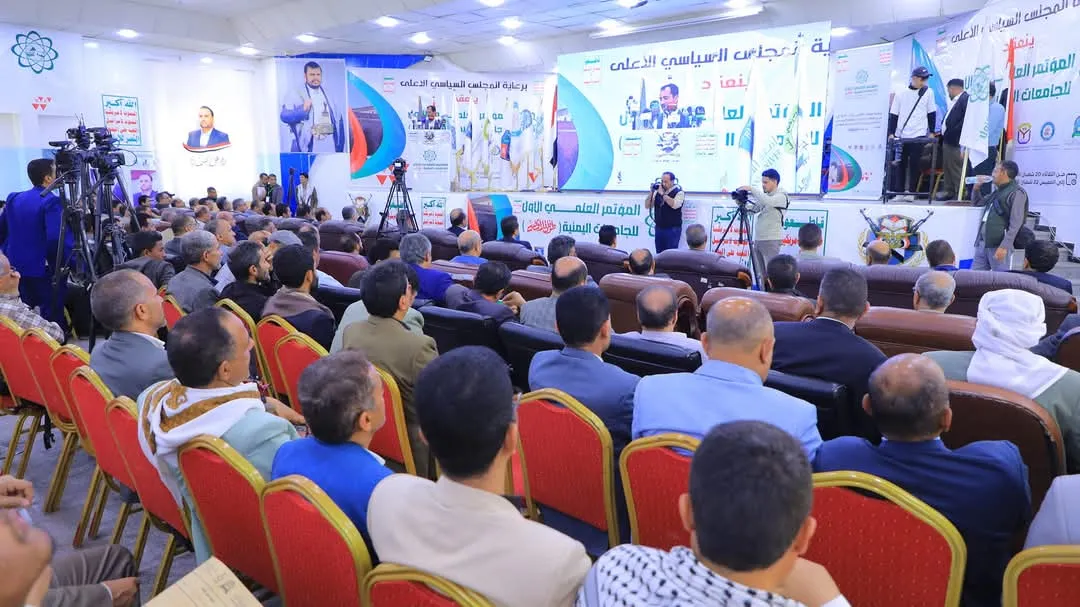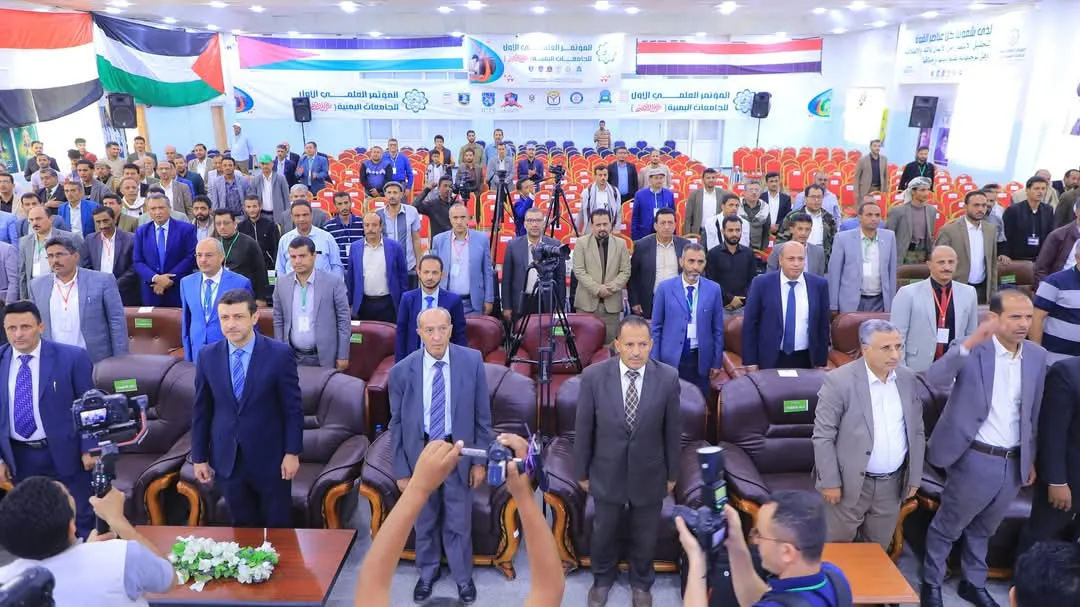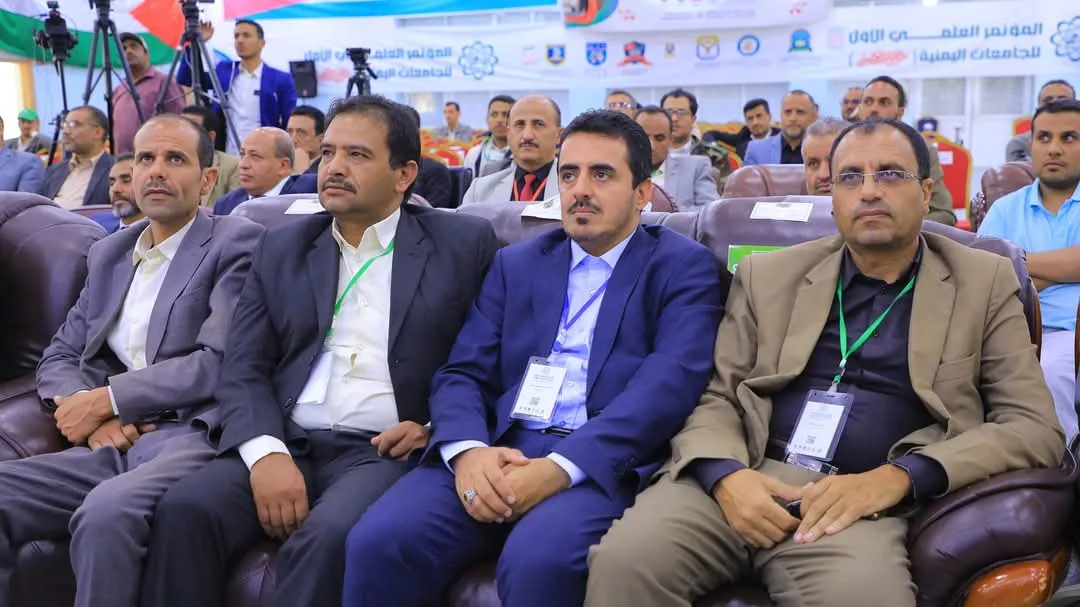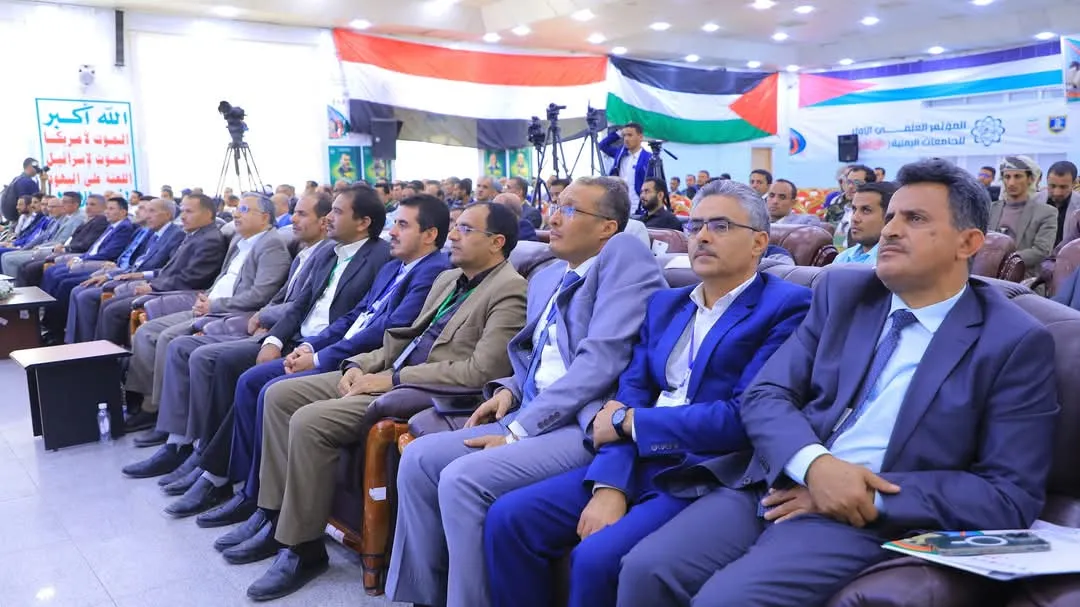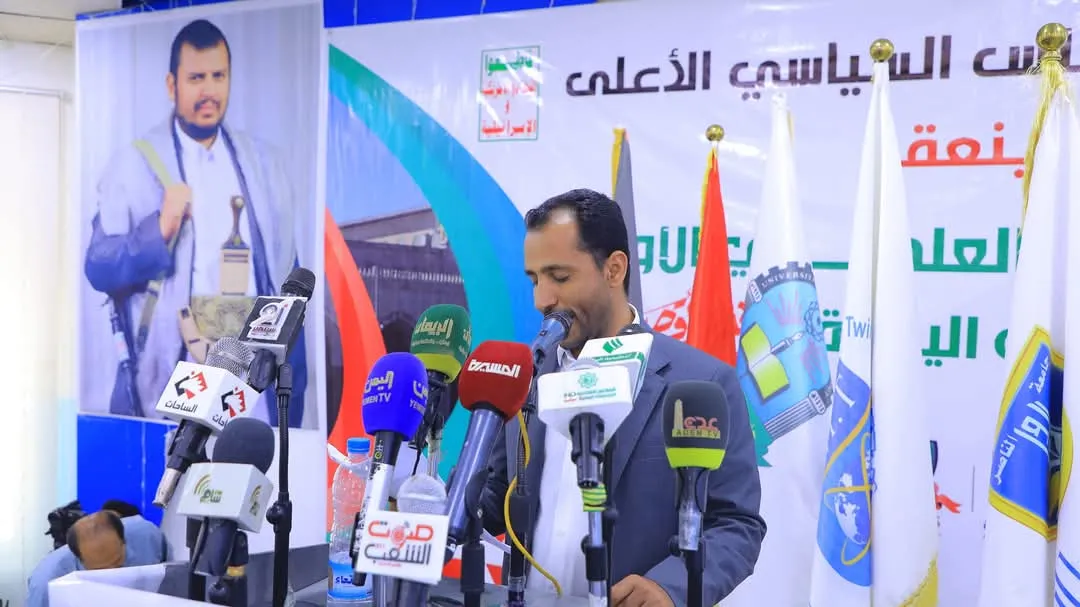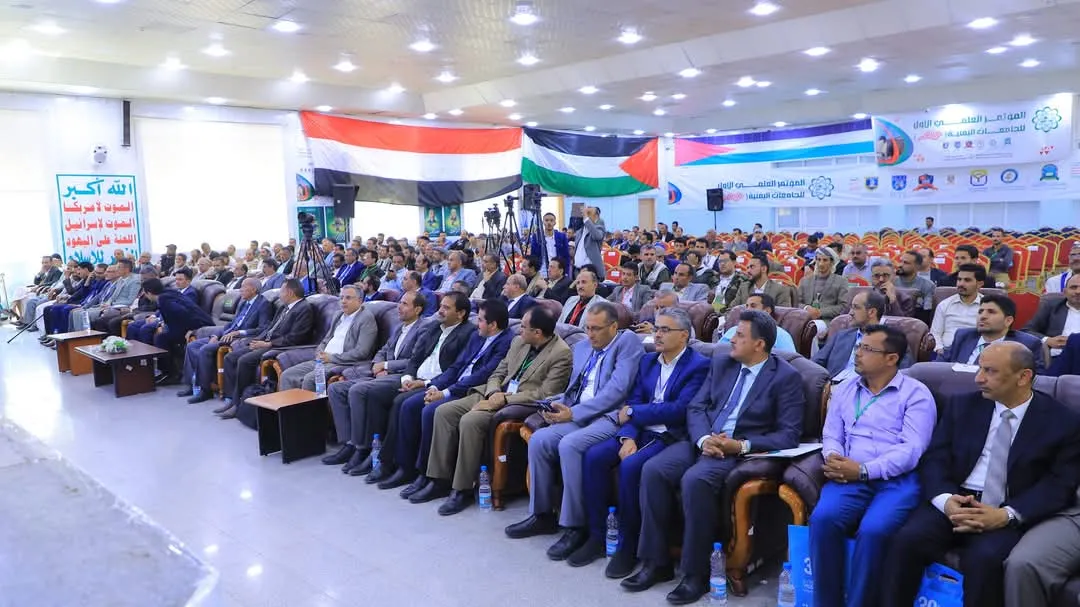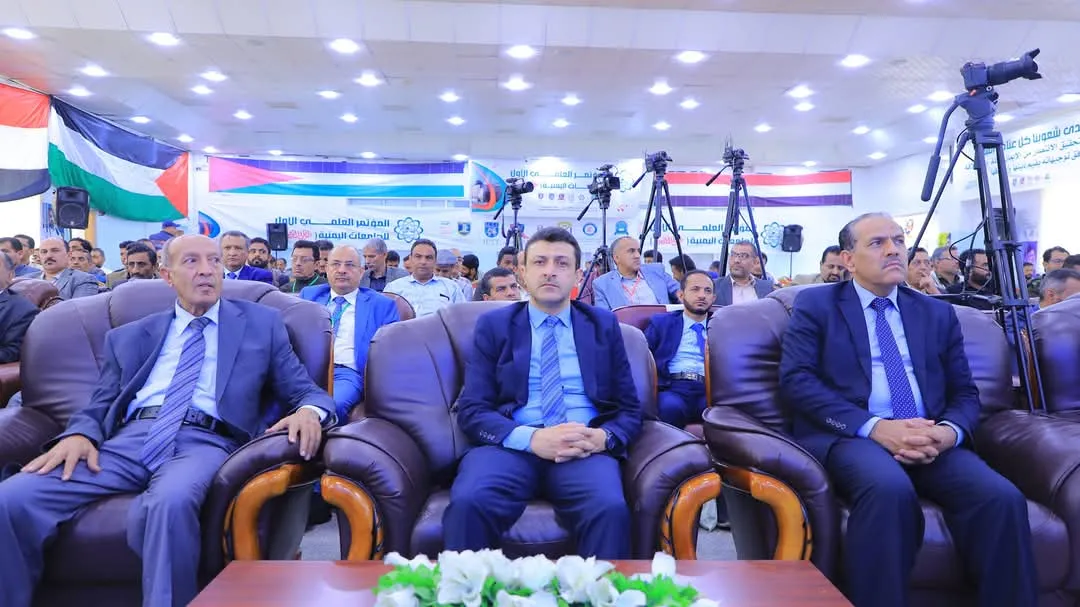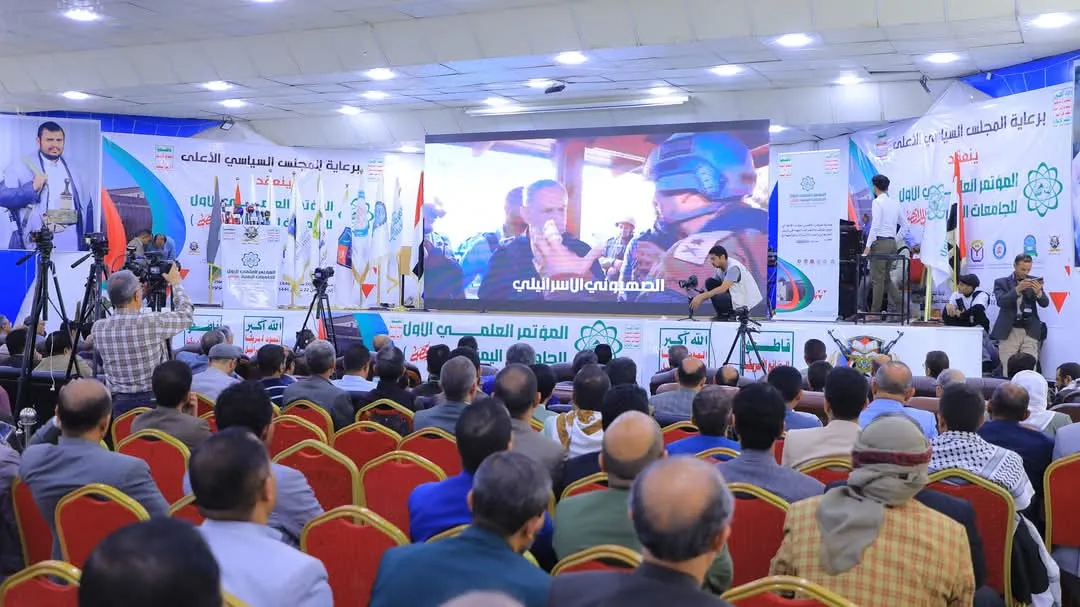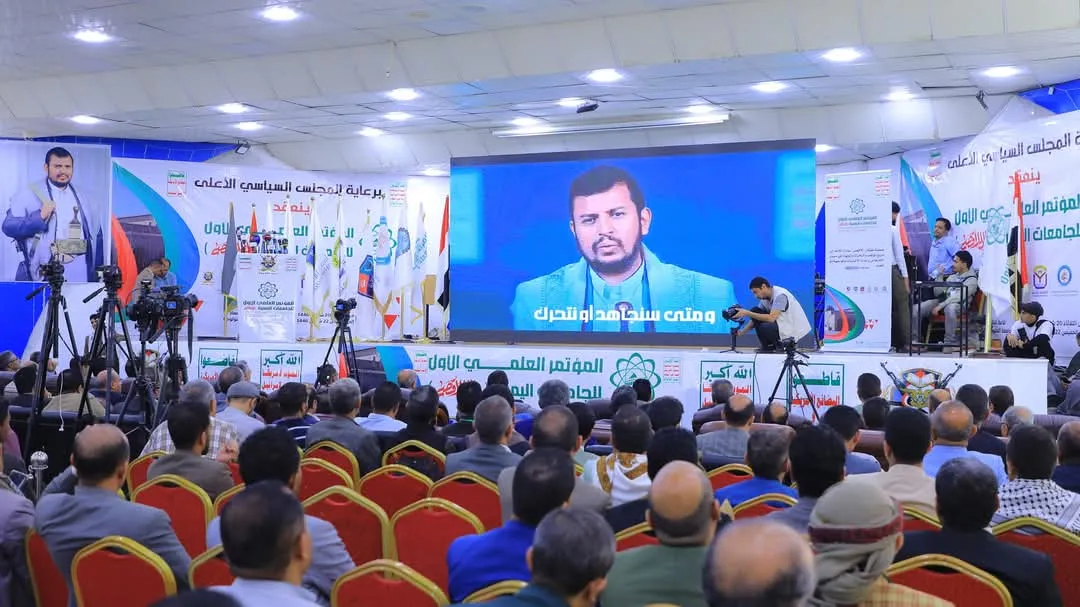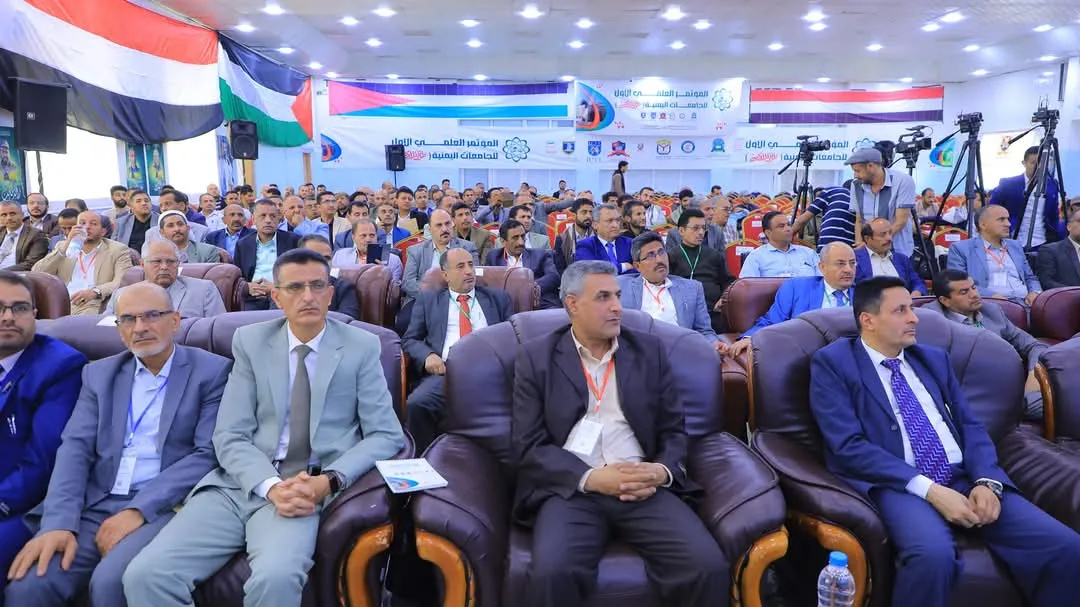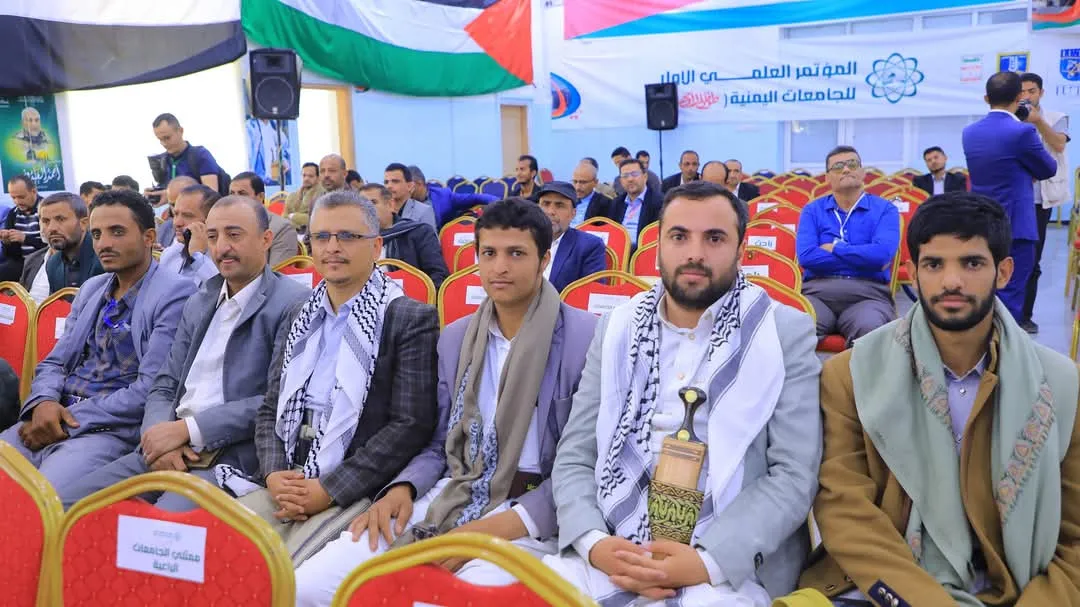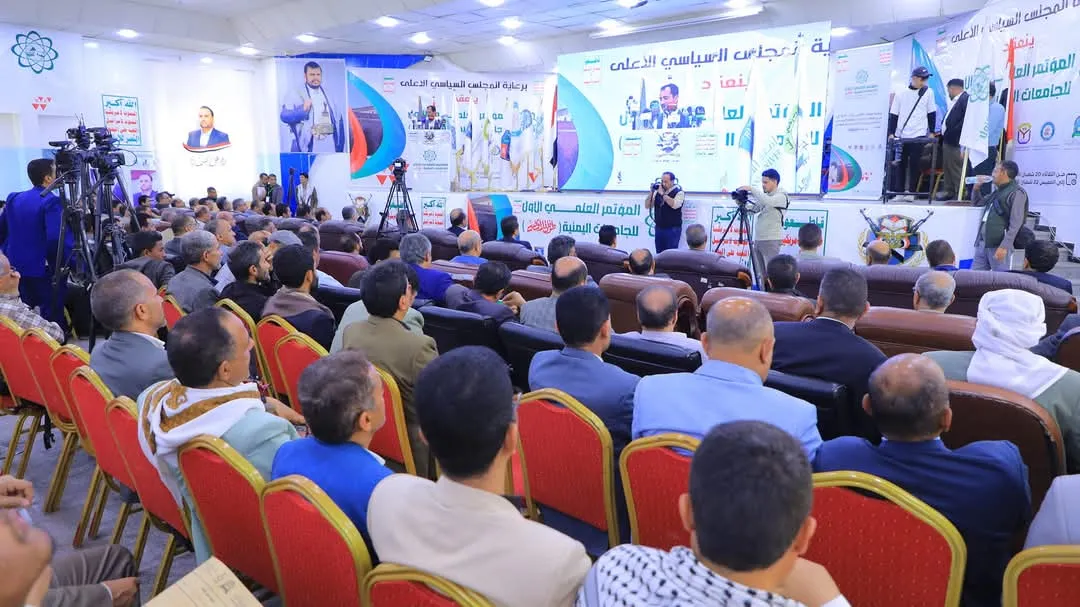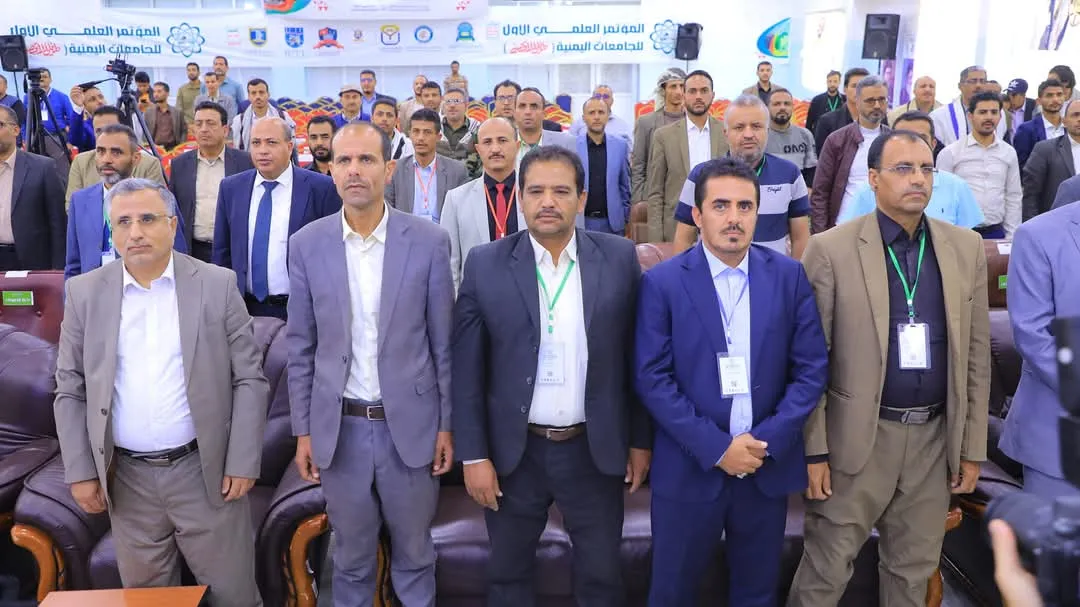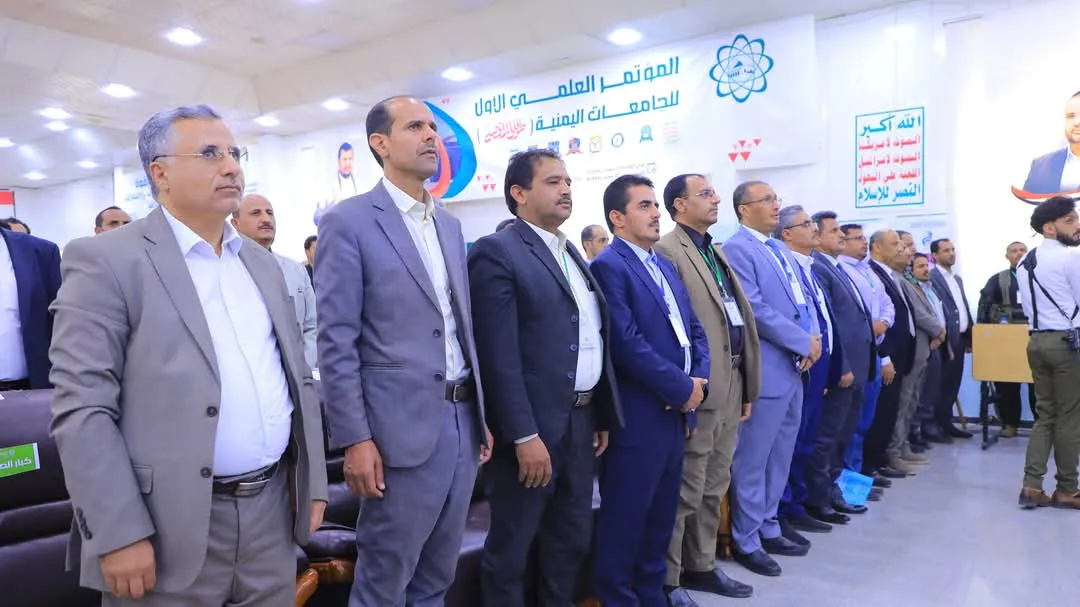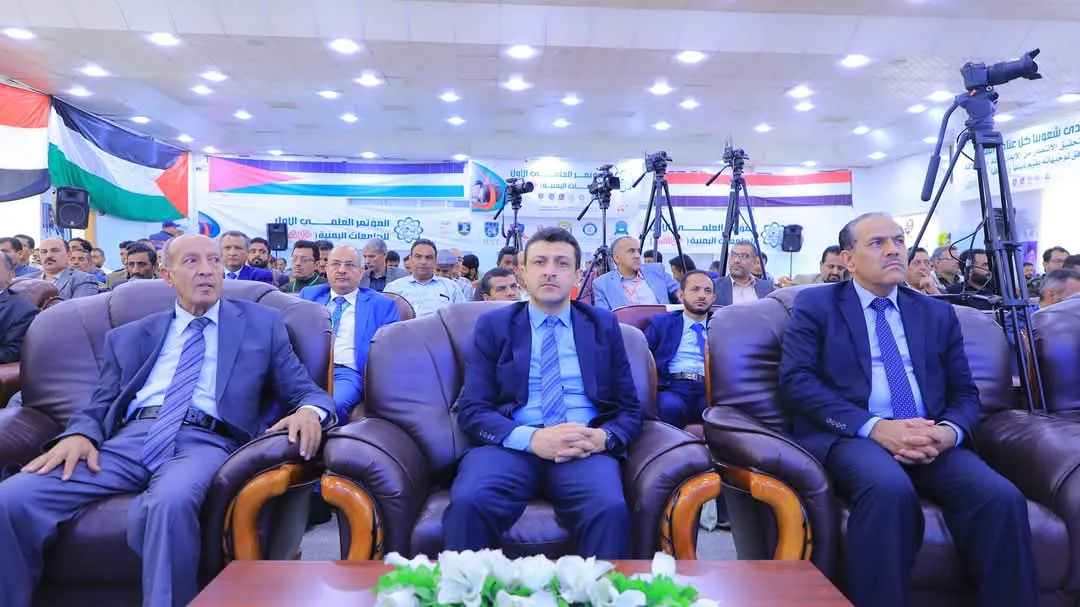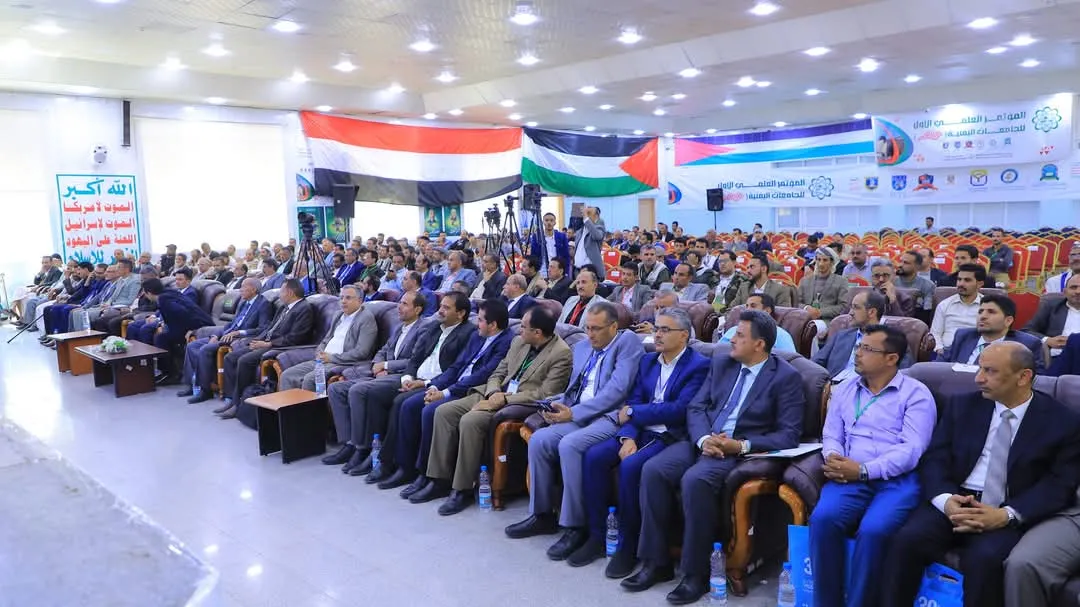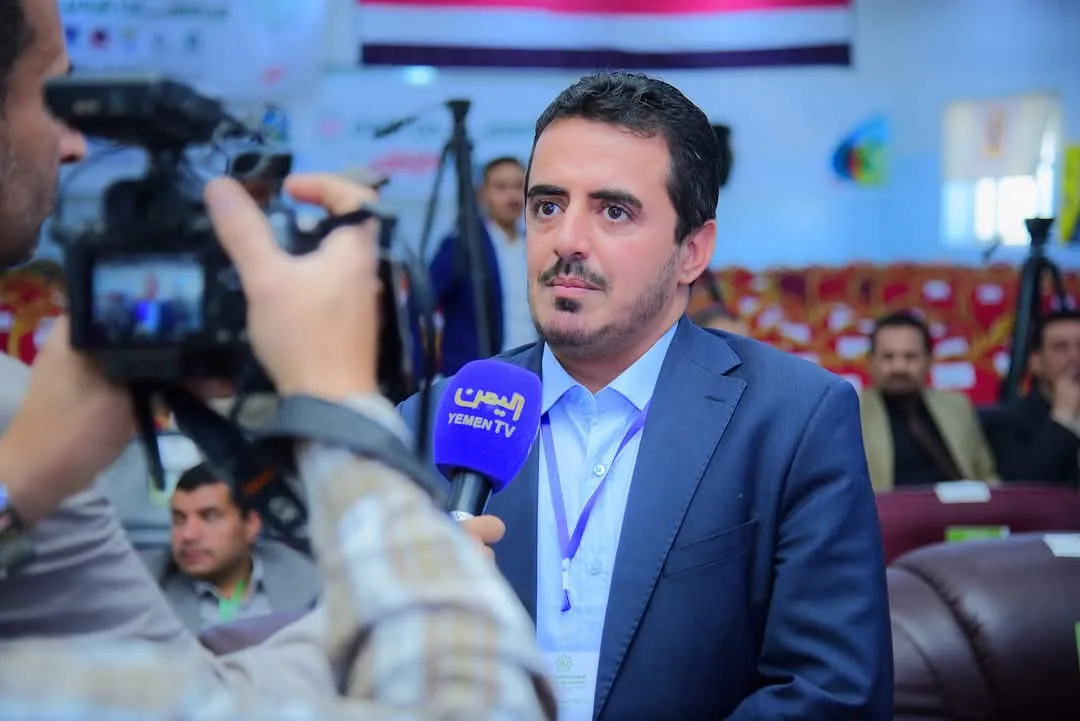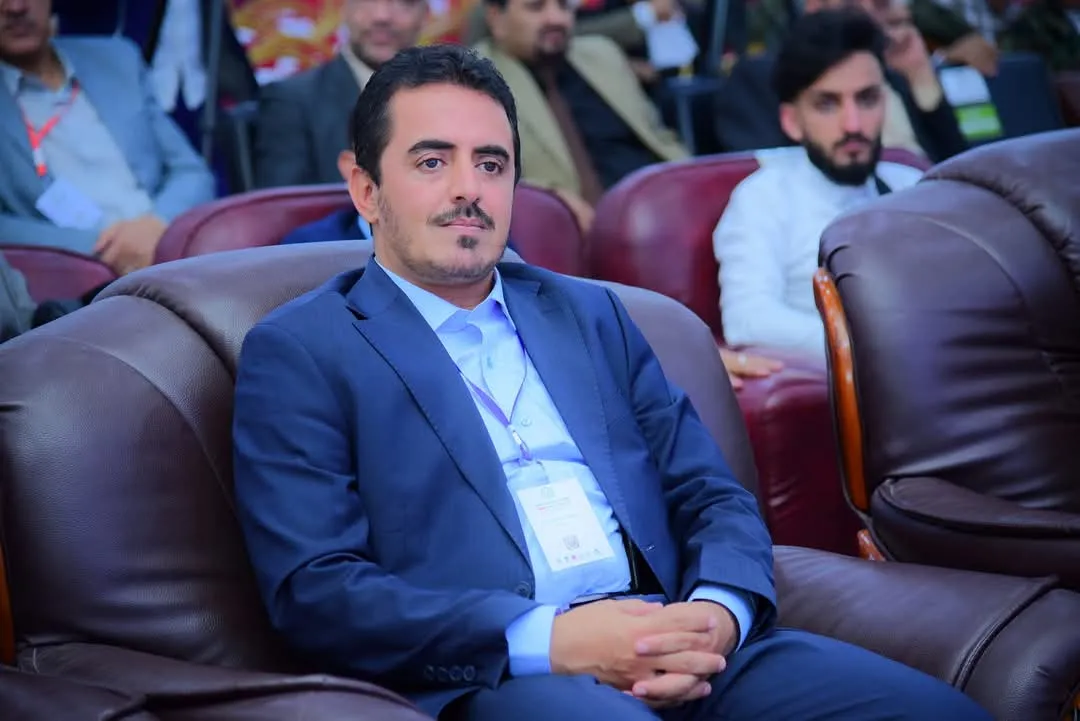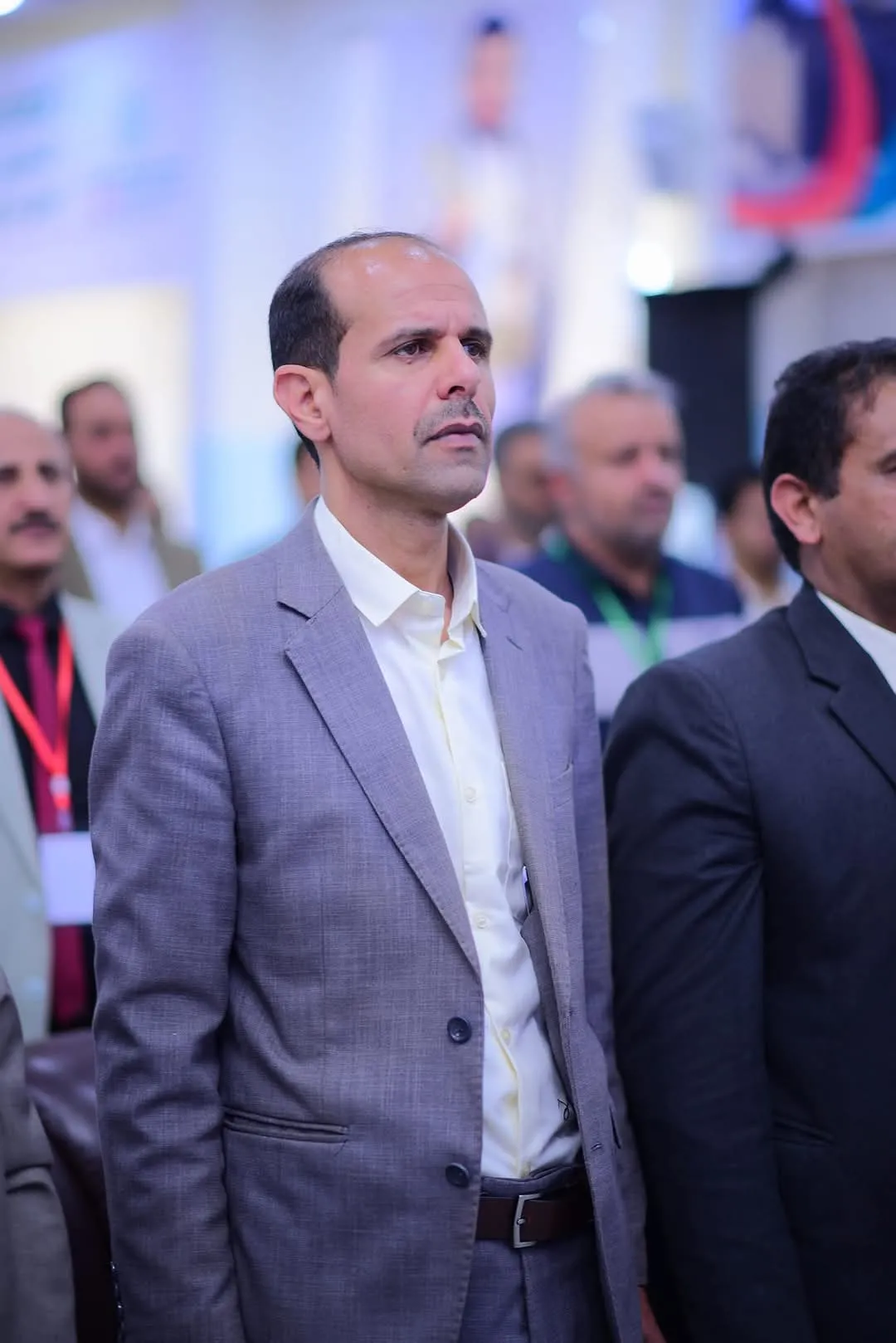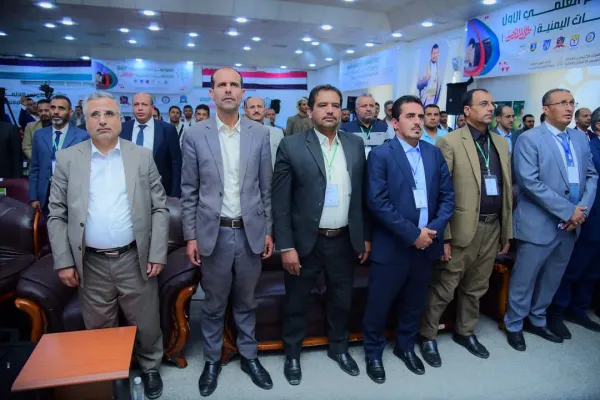
Sana'a.. The first scientific conference of Yemeni universities on "T.. and Van Al.. Qusai" concludes with the participation of the International Emirates University
University Media
The first scientific conference of Yemeni universities on "T.. and Van Al.. Qusai" concluded today in Sana'a, with the participation of the International Emirates University, in sponsoring the conference and the participation of researchers from the university. The conference was organized in three days by six Yemeni universities, including the Emirates University, with the participation of 200 researchers from various Yemeni universities.
The participants in the first scientific conference of Yemeni universities on "T.. and Van Al.. Qusai" called for attention to documenting the honorable Yemeni position and its official and popular support for the battle of "T.. and Van Al.. Qusai", and exposing the historical roles of America and Western countries supporting the Zionist project, and the necessity of documenting the shameful positions of the Arab regimes that normalized relations with the entity of the enemy and the Israelis and preserving them for generations and raising awareness of the importance of knowing the history of the conflict with the Jews according to the Quranic methodology.
At the conclusion of the conference today, which was organized over three days by six Yemeni universities with the participation of 200 researchers from various Yemeni universities, they stressed the need to document the shameful positions of the Arab regimes that normalized relations with the Israeli enemy entity and preserve them for generations and raise awareness of the importance of knowing the history of the conflict with the Jews according to the Quranic methodology.
The conference recommendations called for documenting the role of scholars from countries that normalized relations or are loyal to the enemy throughout history in implementing the Jewish plans to subjugate Arab peoples and regimes under the slogan of obeying the ruler, which contributed to strengthening the Jews' ability to engineer Arab inaction and expose the agents and traitors of the nation seeking to protect the Zionist project in the region.
The recommendations indicated working to support international and diplomatic field movements against the Israeli enemy that support the Palestinian cause, and paying attention to supporting the movement of the State of South Africa before the International Court of Justice regarding the Israeli enemy entity's commission of genocide crimes in Gaza and its violation of the 1948 Genocide PreventionConventions.
The recommendations also called on Arab and Islamic societies to change the position of the Islamic and Arab world, both governmental and popular, which showed an unprecedented failure of the just Palestinian struggle represented by the Battle of "Al-Aqsa Flood" and the subsequent catastrophic consequences and crimes committed by the Israeli enemy against the Palestinians in the Gaza Strip and the West Bank, and later the crimes committed against the Lebanese people.
It called for directing research and studies in research institutions towards the priorities focused on by the results and recommendations of the conference and strengthening and consolidating the principle of loyalty and disavowal of the enemies of God and the nation, especially the American and Israeli enemy, and rallying around the Leader and the Quranic project and assuming responsibility for building the nation and preparing it to confront the enemies.
The conference participants recommended that the relevant authorities review the educational legislation and regulations regulating education and include in them issues that develop cultural awareness, in a way that enhances the faith identity inspired by the Quranic project, and spreading Quranic culture to enhance the jihadist spirit and concepts of the culture of jihad and martyrdom among the emerging generations by including them in the educational curricula.
They stressed the importance of protecting youth from Western culture and soft warfare, and enhancing awareness of the legitimacy of the Palestinian cause and the injustice of the Palestinian people, to achieve their freedom and independence, and liberate Al-Aqsa Mosque, Holy Jerusalem, and the occupied territories from the filth of the usurping Jews.
The participants also recommended activating the role of the media in exposing the ambitions of the Israeli and American enemy in the capabilities and wealth of the Arab and Islamic nation, and their persistent and continuous efforts to weaken the nation, confirming what the martyr leader mentioned, as well as educating the nation about the inevitability of the demise of the Israeli enemy.
The recommendations stressed the unification and direction of the media discourse to expose the weakness of the Israeli enemy entity and document its losses in the "Al-Aqsa Flood" battle militarily, security-wise, politically, and economically, and to consolidate awareness of the importance of the media and social media in enhancing understanding and awareness of the issues of the nation, foremost of which is the Palestinian issue.
The participants also called for paying attention to the correct speech of media content, which does not go beyond the limits of correctness, and investigating the truth, to provide media content, within the framework of broad interests, in the major issues of the nation, and developing the curricula of educational institutions, and including the conflict with the enemy, foremost of which is the conflict with the Zionist enemy entity, and enhancing student activities that discuss the Palestinian issue.
The recommendations expressed the hope to encourage students to participate in cultural and literary competitions that reflect their understanding of the Palestinian issue, and to activate the roles of faculty members at Yemeni universities towards the "Al-Aqsa Flood" battle, which is represented in four main roles: "the educational and cultural role, research production, the relief and solidarity role, and the leadership and guidance role."
It urged conducting more studies and research related to strengthening Islamic unity by reading and analyzing the notebooks and lectures of the martyr leader and the lectures and speeches of Sayyid al-Qa'id on the issues of the conflict with the Israeli and American enemy entity and the countries of injustice and arrogance.
The call was renewed to continue raising awareness of boycotting Zionist, American and enemy-supporting products, and not to limit it to the period of aggression, and to support the Palestinian economy as a religious, moral and national duty that must be strengthened by effective cooperation, sustainable partnership and the possibility of benefiting from modern technology in collecting donations and transferring them electronically to enhance the steadfastness of the Palestinian people.
The recommendations stressed the development of a comprehensive strategy that benefits from historical and contemporary experiences in boycotting, confronting the siege and activating the strengths that the Arab nation possesses to pressure the Israeli enemy and the countries that support it, similar to the Yemeni role.
The participants appreciated Yemen's position and its readiness to continue supporting the brothers in Palestine financially, morally and militarily until the bloodshed in Gaza in particular and in Palestine in general stops, and to work to achieve self-sufficiency for the nation in all fields, in order to achieve its economic independence.
The conference recommended establishing a specialized cyber unit within the Resistance Axis wing that works on developing advanced strategies and tools to protect digital systems, calling for working on building a faithful army that derives its strength from the Quranic vision that establishes the principle of loyalty to God and His Messenger, and the flags of guidance so that it can confront the enemies of the nation, and achieve actual victory over the enemies, and focus on spreading and establishing the military and combat doctrine, jihad and martyrdom among the members of the armed forces.
At the conclusion of the conference, Deputy Minister of Education and Scientific Research Dr. Hatem Al-Dais congratulated the success of the conference and the issuance of qualitative recommendations and called for following up on their implementation and transforming them into tangible work programs to achieve the desired goals and objectives.
He stressed the importance of continuing events and conferences, especially those related to studying the repercussions of cybersecurity and artificial intelligence.. appreciating the efforts of everyone who contributed and participated in supporting and making the conference a success and hosting the University of Science and Technology for its work, as well as all events, conferences and scientific activities and keenness to stand by it to restore it to its former glory.
In turn, the President of the University of Science and Technology, Dr. Khaled Salah, confirmed in the universities' speech that the conference organized by the "Emirati International, Yemeni, Science and Technology, Tontec, Al-Nasser, and Azal for Human Development" universities sought to revive the role of universities and enhance efforts to support and document the "Al-Aqsa Flood" battle and discuss its dimensions and results on the ground.
He praised the efforts of the committees that worked and contributed to the success of the conference, which highlighted the leadership role of the Leader and the Yemeni people in the "Al-Aqsa Flood" battle and discussed its repercussions in the cultural, scientific, political, administrative, military, media, economic and other fields, and came up with recommendations that enhance the role of research and teaching universities in serving the issues of the nation.
At the conclusion of the conference, which was attended by the Vice-Chairman of the Supervisory Committee, Dr. Fouad Hanash, the Heads of the Scientific Committees, Dr. Muhammad Al-Bukhaiti, the Preparatory Committee, Dr. Abdullah Jahhaf, the Vice-Chairman of the Academic Accreditation Council, Dr. Abdul Aziz Al-Shaibi, the Secretary-General, Dr. Muhammad Daif Allah, and a group of academics and presidents of public and private universities, the sponsors and participants in the conference and the organizing universities were honored with shields, and the scientific, preparatory and media committees and researchers with certificates of appreciation.
On the final day, the conference activities included 35 research papers and scientific papers in seven working sessions, focusing on the role of Yemeni universities in enhancing awareness of the Al-Aqsa Flood from the point of view of students and faculty members.
The research and papers addressed the role of the media and social media in exposing the crimes of the Zionist entity, the importance of the Quranic project, its influence, success, victory and effectiveness in confronting the American-Zionist aggression in the battle, evidence of the entity's demise from religious, historical and universal constants, the impact of the Bab al-Mandab Strait attacks on global trade routes during the battle, the importance of the boycott weapon in the historical and Islamic context, the role of universities in building cultural awareness among students, as well as the role of tunnel engineering in strengthening the steadfastness of the resistance and the Palestinian people.
Website:
https://eiu.edu.ye
#Emirati_International_University
#Modernity_is_Distinction
#EIU

